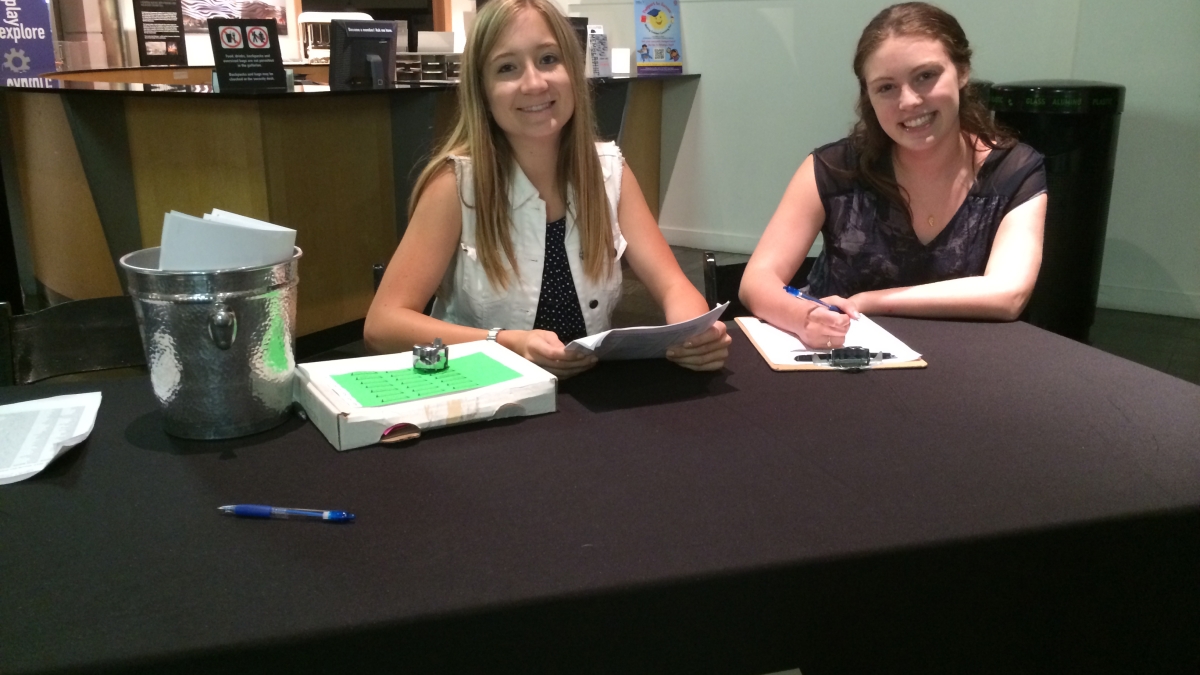Cronkite students report on global sustainability in California

Two Arizona State University students at the Walter Cronkite School of Journalism and Mass Communication participated in a new fellowship, shining a light on important global sustainability issues for a cutting-edge media outlet in California.
Kelsey Hess of South Pasadena, California, and Chloe Nordquist of Gilbert, Arizona, were the inaugural Cronkite students to participate in a special journalism sustainability fellowship at Zócalo Public Square, an ideas exchange that blends live events and humanities journalism. The nonprofit organization is part of the ASU Center for Social Cohesion, a project dedicated to studying the forces that shape social unity.
“Chloe and Kelsey's work at Zócalo, as part of our deep and proud affiliation with ASU and Cronkite, reflect our mission of translating ideas to broad audiences and engaging a new, young and diverse generation in the public square,” said Gregory Rodriguez, founder and publisher of Zócalo. “We look forward to having more ASU Cronkite students as part of our team.”
For three months, the two students worked with Zócalo leadership and staff, assisting daily with conceiving, editing and reporting of original stories on sustainability, community health and other important civic issues. During the fellowship, Hess and Nordquist tackled critical sustainability topics such as water reuse and recycling and the use of public spaces. The students worked in Zócalo’s offices in Santa Monica, California, at the ASU California Center, a new outreach hub offering workshops, forums and internships.
According to Sarah Rothbard, Zócalo editor and associate publisher, the fellowship helped the students move beyond the typical buzzwords associated with sustainability to gain a deeper understanding of the growing discipline.
“Chloe and Kelsey were terrific,” Rothbard said. “They were a real part of the culture here. They came away knowing more about sustainability and practicing a 21st century model for sustainability journalism.”
During the fellowship, the students met and collaborated with sustainability authors and thought leaders. The two visited the Los Angeles County Office of Sustainability, which is tasked with responding to legislation, regulation and policy related to climate change, and serves as a central hub to coordinate energy efficiency, conservation and sustainability programs within the county.
Hess said the fellowship made her more conscious of sustainability issues as she pursues a career in magazine journalism.
“Zócalo has an amazing collection of editors,” Hess said. “I was really learning from the best.”
The students also connected with people from diverse backgrounds, from scholars of sustainability to an Australian farmer, as well as with sustainability experts, helping them formulate articles for the Zócalo website, which publishes original daily essays that are distributed to more than 150 media outlets around the world. The students used their journalism skills to collaborate with the authors to identify important sustainability angles and trends, such as water desalination and the ethical dilemmas of profiting off public spaces.
Hess and Nordquist also helped organize several Zócalo public events, connecting people to innovative ideas. The fellowship culminated with the students writing articles on topics of their choice for the Zócalo website. Those articles also appeared on The Washington Post’s PostEverything website.
“This was a lot different than your average reporting internship,” Nordquist said. “It was really interesting. Getting the opportunity to be a part of the editorial meetings and the team was a great experience.”

